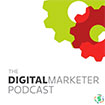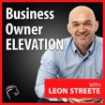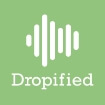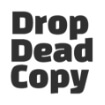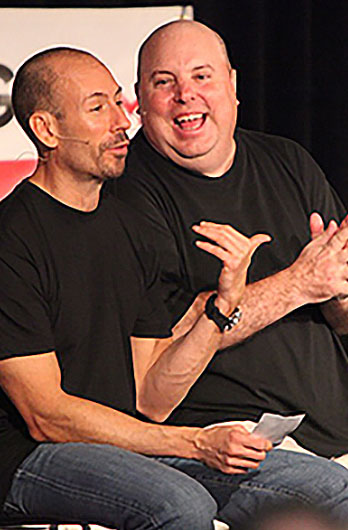Reality check:
You need more customers.
You want to spend less time behind your computer and more time in front of your life.
You see these other marketers driving fancy cars and working 4 hour work weeks, and you wonder how the hell they’re pulling it off.
And maybe you’re still looking to make your first dollar online…or your first thousand dollars. Maybe your first $100,000.
Whatever your goals are, and wherever you may be in the spectrum of success, you can bank on one absolute fact:
Email marketing is the fastest, cheapest, and most reliable way of you getting you there…if you do it right.
To make email marketing pay off, you need to understand some consumer and marketer trends over the past few years. These trends have catapulted email into the #1 slot, and will keep it there for many years to come.
Take advantage of each of these trends, and watch your business grow, your free time expand, and your stress levels drop.
#1: Facebook And Google Algorithms Now Favor The Famous
Let’s say you have a hot new webinar, or a killer sales page. Or let’s just say you have a simple opt-in page and you’re wanting to collect some new leads.
You take a course on Facebook or Google ads and off you go. You test. You spend. You test some more. You spend…a lot more. And you end up getting a few leads here and there that cost you far more than you can ever make back in return.
That’s been the way marketing has been trending over the past several years, and specifically over the last few months. Why? Because these marketing giants are playing the safer bets. They are going to put guys who are spending more money and have spent more money over time in a heavier rotation.
In short, your ads are getting buried, and the audience you’re after is seeing the ads of your more well-known and wealthier competitors. This has always been the case, but never to the extent it is now…and it’s going to get far worse in the coming year.
What that means is that you have to get very smart when it comes to any ads you purchase. You have to understand what these social media giants have based their entire existence off of, and play to their game.
That game is content marketing. Your competition has more money, but they also have far more historical content.
You’re far better off using the same content you send out as emails and posting them on free article sites like medium.com. Using the methods I will talk about on our upcoming webinar (at the bottom of this article) I’ll share how my clients are building huge lists without spending a dime on Facebook or Google.
#2: More Demand For Email = Less Cost
In 2017, email marketing almost lapped every other form of marketing when it comes to return on investment, pulling in a whopping $38 for every $1 spent according to MarketingSherpa.com and sarv.com.
There’s not a chance in hell any other form of marketing can touch that stat. Banner ads, direct mail, Facebook, television…nothing comes close.
Just to be clear: that doesn’t mean you spend a buck and make $38. That would be lovely, right? What that means is you have the potential to spend a dollar and make almost forty. You still have to do it right, which is what I teach marketers to do.
What that also means is that the cost to send email has nosedived in the past few years. You now have dozens of inexpensive email clients like MailChimp, Drip, Aweber, and others that offer inexpensive monthly fees to broadcast to thousands of prospects.
When you combine free traffic strategies like I covered in Trend #1 with consistent, 3-5x per week emails to your list, your ROI can soar to these levels.
One reason we’ve seen such a radical increase in email ROI over the past 18 months is due to a downright freaky trend:
#3: Email Took Over Text Messaging
If you are a teenager, or happen to know one (perhaps a few live under your roof!) you know that texting is essentially their part-time job…if not full-time. Even we adults spend more and more time every year texting our lives away.
But did you know that checking email is now the number one activity on mobile devices? According to MarketingCharts.com, 91% of us check email at least once a day on a mobile device. This edged out text messaging and searching!
Think about how much you text. Now, picture your potential customers reading their emails even more than that.
You might suspect that email would decrease and text increase, and you would be right if you were only looking at teens. But for your target market, as much as they do text and surf, they check email even more.
The trends that led to this is a decrease in data prices, our near-addiction to our smart phones, and a near-three-fold increase in data towers.
What this means for email marketing is staggering – if your messages are compelling, clear, and avoid long paragraphs.
Remember: the scroll on a smart phone is much longer, so keep your paragraphs short. I like to keep them to two-three sentences max, and often use only one sentence per paragraph.
#4: Trust In Email Has Risen Dramatically
Echoing back to Trend #3 for a moment, there are a slew of studies on why we are addicted to our smart phones. Many point to the fact that we hold them close to our person. This creates a different tactile connection than, say, a laptop.
Other studies look at the things we hold in our hands compared to things we hold with our hands. Being held (and holding others) is a human need, and the things we can hold within our hand connect with that primal emotion. Pretty wild, eh?
Since 91% of your potential buyers are holding their smart phones and checking email, it only makes sense that MarketingSherpa.com reports an increase in email buying trust in 2017…one that is rising steadily.
Email now comes in at number one when it comes to buying anything, and by a wide margin. 70% of all transactions are now handled from or buy email, with the nearest competitor, direct mail, coming in 20% lower.
If you’re not selling with email, you’re literally burning money.
#5: The Bizarre Request For More
What if I told you that 38% of your email list requests more promos from you? Would that surprise you? I have to admit, I shocked even me.
Sarv reported that 38% of participants surveyed said they wanted to receive more frequent email promotions, and a massive 61% said they enjoyed WEEKLY promotions. This explains why guys like me who email my list every day make far more money than others that email only once or twice a week.
Again, we need to turn to psychology for some answers to this. First, there’s “top of mind” – becoming a mental fixture in your prospect’s mind. Your prospect is busy. The more they see from you, the more top-of-mind you become.
The second reason is a desire to improve. Self-improvement consumption has skyrocketed over the past ten years, and especially over the past three.
Well-written promotions that focus on delivering benefits and value are seen as helpful, while poorly written emails are seen as a distraction. As long as your promos focus on benefits rather than on how awesome you are or your product or service happens to be, the better.
Finally, there’s the interesting connection between frequency and trust. Studies show that the average consumer must see an ad nine times before they act on it. Some of this is due to top-of-mind, but some is due to how we form trust in the brain.
“Trust neurons” is what I refer to these dendrite connections our brains make that build trust. Repetition is absolutely VITAL to building these mental bridges, and the more your prospect has, the quicker they become a customer.
The trend for customers wanting MORE promotions is not because they want more spam or junk promos in their inbox. It’s driven by the fact that we do enjoy more free time than ever before in history, with more people working from home than ever. It’s driven by our increased desires for self-improvement.
And to be brutally honest? It’s also driven by the fact that well-written emails create escapism. Just like you enjoy escaping into a great movie, video, food, or a piece of music, your customers enjoy picturing their lives improving.
Getting stronger. Feeling better. Reaching their goals. Experiencing their quality of life improve.
IF you know how to write emails that evoke these feelings and deliver an ethically sound solution for your prospect to solve a problem they are having, you become a hero rather than a nuisance.

